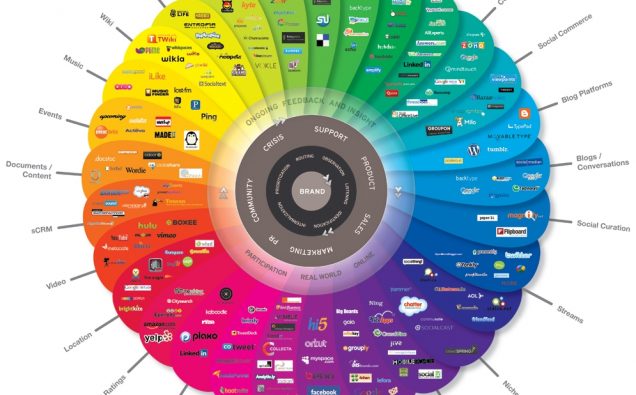
Do you like or dislike political stories and opinions on the social media while offline and all over the electronic and print media as well the talk of a long bitter campaign reaches pretty much all dimensions of discourse?
Or is it both?
The answer may be simple for some, and not so simple for others, as political climate appears to be pervasive in the age of the mass media and 24-hour news cycles.
A new Pew Research Center survey of U.S. adults said this week that political debate and discussion is “indeed a regular fact of digital life for many social media users, and some politically active users enjoy the heated discussions and opportunities for engagement that this mix of social media and politics facilitates.”
At the same time, “a larger share expresses annoyance and aggravation at the tone and content of the political interactions they witness on these platforms.”
Here are some of the findings of the survey:
More than one-third of social media users are worn out by the amount of political content they encounter, and more than half describe their online interactions with those they disagree with politically as stressful and frustrating
The roughly two-thirds of American adults who use social media sites express a relatively wide range of opinions on the political interactions they witness and take part in on these platforms. Many feel overloaded by political content and view their social media interactions with those they disagree with as a source of frustration and annoyance. At the same time, a substantial minority of users enjoy the ability to consume political content and engage in discussions with people on the other side of issues:
Nearly twice as many social media users say they are “worn out” by the amount of political content they see in their feeds (37%) as say they like seeing lots of political information (20%). Still, about four-in-ten (41%) indicate that they don’t feel particularly strongly one way or the other about the amount of political content they encounter on social media.
59% say their social media interactions with those with opposing political views are stressful and frustrating – although 35% find them interesting and informative.
64% say their online encounters with people on the opposite side of the political spectrum leave them feeling as if they have even less in common than they thought – although 29% say they end these discussions feeling that they have more in common than they might have anticipated.
Many users view the tone of political discussions on social media as uniquely angry and disrespectful – although a sizable share feels that these discussions simply reflect the broader political climate.
According to a Pew report on its website, when asked how they view the tone of the political discussions they see on social media, a substantial share of social media users feel these platforms are uniquely angry and disrespectful venues for engaging in political debate.
The survey also reveals that some 40% of users agree strongly with the notion that social media are places where people say things while discussing politics that they would never say in person (an additional 44% feel that this statement describes social media somewhat well).
Moreover, roughly half of users feel the political conversations they see on social media are angrier (49%), less respectful (53%) and less civil (49%) than those in other areas of life. At the same time, a notable minority feels that the political discussions they see on social media are largely reflective of the political discussions they witness in other areas of their lives: For instance, 39% of users feel that these interactions are no more less respectful than other political interactions they encounter. And a small share finds political debates on social media to be more civil (7%), more informative (14%) and more focused on important policy issues (10%) than those they see elsewhere.
The survey says most users try to ignore political arguments on social media as best they can; when that fails, they take steps to curate their feeds and avoid the most offensive types of content
For the most part, social media users try to refrain from engaging with the political arguments that enter their feeds: 83% of them say that when their friends post something about politics that they disagree with they usually just try to ignore it, while 15% usually respond to these posts with a post or comment of their own.
Around one-third of social media users (31%) say they have changed their settings in order to see fewer posts from someone in their feed because of something related to politics, while 27% have blocked or unfriended someone for that reason. Taken together, this amounts to 39% of social media users – and 60% of them indicate that they took this step because someone was posting political content that they found offensive.
“Despite these annoyances, some users – especially those with high levels of political engagement – enjoy talking, debating and posting about political issues on social media.”
Yet, the Pew Research Service says, for all of the tensions and annoyances that accompany political debates on social media, some users do see a good side to these interactions. This is especially true of those Americans who indicate a high level of interest and involvement in the political process more broadly.
Interestingly, frustration over politically oriented social media discussions is a bipartisan phenomenon
“Even as their overall political attitudes differ dramatically, Democrats and Republicans (including independents and other nonpartisans who “lean” toward either party) tend to view and utilize social media in largely comparable ways.”
















